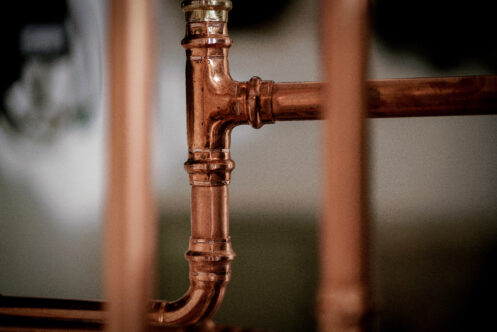Portland Plumber: Do You Have Rusted or Corroded Pipes?
How old is your home? If it was built before the late 1980s, there’s a decent chance you have cast iron pipes. If this is the case, your plumbing could fall victim to rust and corrosion.
Before it was phased out, cast iron had been a sewer mainstay for decades. It does the job, but the problem is that when it begins to deteriorate, it happens fast. Most plumbing systems made of cast iron start to have serious issues after 30 to 50 years in the ground. As metallic pipe surfaces come into contact with moisture, rust, and corrosion begin to set in. If you don’t get on this quickly, the pipe weakens and will eventually require replacement.
- Rust: Interior, exterior—it makes no difference. If any part of a cast iron pipe comes directly into contact with wastewater over a significant amount of time, rust is the natural next step over time. Rusted pipes have a two-fold effect on your plumbing system, both of which decrease the flow of the sewer line. First, the continued accumulation of rust on the pipe interior constricts the diameter. Secondly, this rust creates a rough, uneven surface that slows down the pace at which wastewater can flow through the pipe.
- Corrosion: Even more serious than the danger of rust for cast iron pipes is corrosion. Over time, wastewater flow will gradually carve a channel at the bottom of the pipe that, if left untreated, will erode through the pipe, weakening the structure and allowing for foreign material to enter the line. At the same time, wastewater can leak from the pipe resulting in erosion and eventual bellies in the line that will lead to catastrophic collapse.
Both of these issues are common causes of water line replacement. The best way to learn if one is afflicting your pipes is by calling [company_name] for more information. Our operators are standing by!





